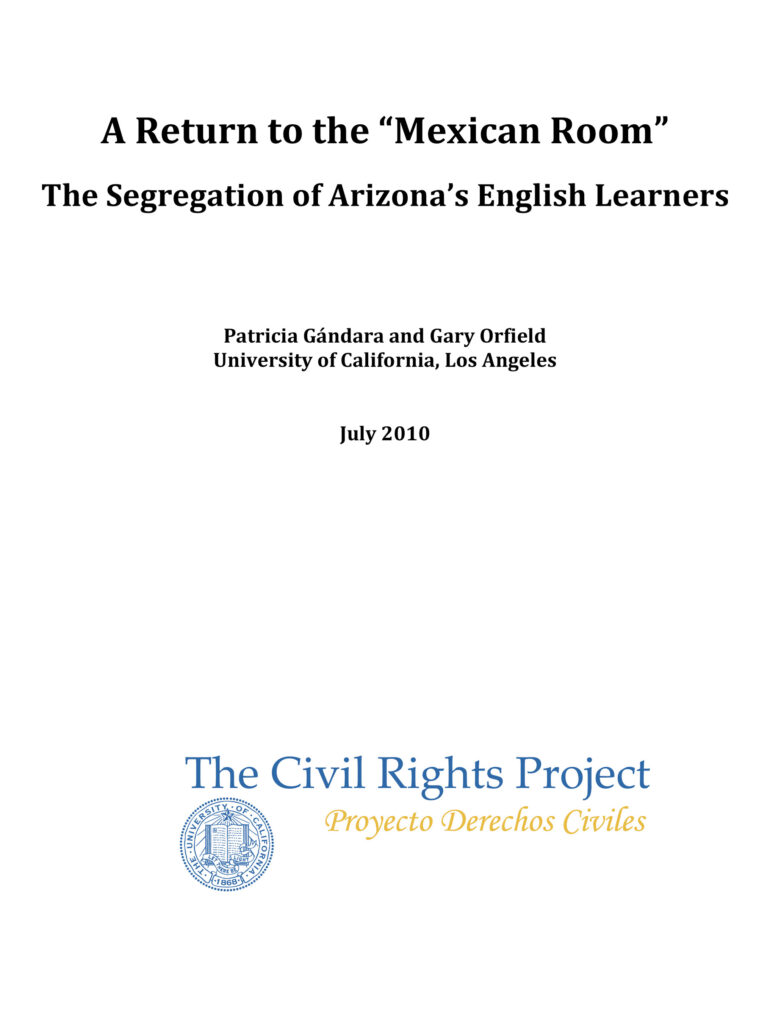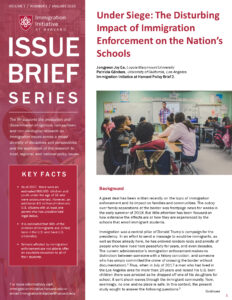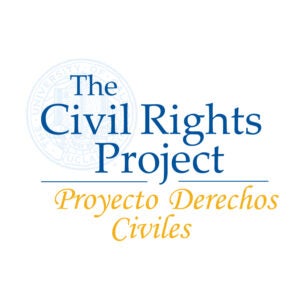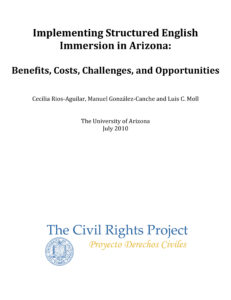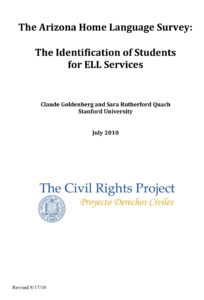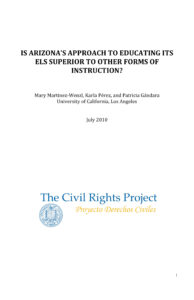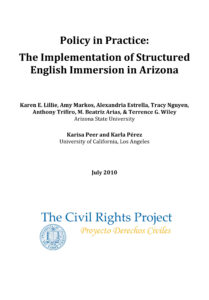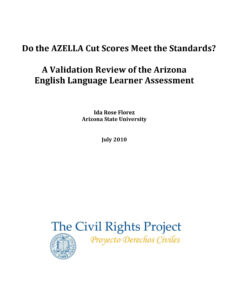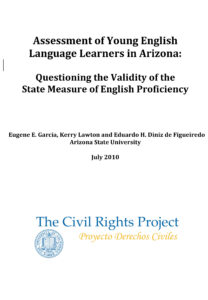This is one of nine papers of the Arizona Educational Equity Project: 21 senior scholars and advanced graduate students from four major research universities joined together, under the aegis of the Civil Rights Project at UCLA, to produce the studies on the condition of English learner students in Arizona
Abstract:
This paper reviews the research on the impact of segregation on Latino and English learner students, including new empirical research conducted in Arizona. It also reviews court decisions regarding students’ rights to be integrated with their mainstream peers, and provides data on the increasing segregation of Arizona’s Latino and English learner students. Given that the great majority (over 80%) of Arizona’s English language learners are Spanish speakers, there is considerable overlap between ELL and Latino students. The paper also reviews the extant literature on the impact of segregation at both the school and classroom levels and pays special attention to the particularly deleterious effects of linguistic isolation for English learners. The paper concludes that the excessive segregation of Arizona’s Latino and EL students is most probably harmful to these students’ achievement and social and emotional development and that there are alternative strategies that the state could use to ameliorate these harms and provide a more effective education for these students.
For more information on the series, view the Arizona Educational Equity Project Overview.
The Arizona Educational Equity Project grew from the class action lawsuit of Horne v. Flores, which was initially brought against the state of Arizona in 1992 on behalf of English language learners (ELLs) there. The case reached the U.S. Supreme Court, which issued a ruling on June 25, 2009, establishing new legal standards for the EEOA but also returning the case to the Federal District Court in Arizona, to examine Arizona’s instructional policies for ELLs. The issues argued in the Arizona court had important implications for the educational rights of the tenth of U.S. students classified as ELL and for the federal law that protects them. The challenge to the research community was to provide the best possible information on how ELL students were faring under current Arizona educational policies. The Civil Rights Project spearheaded the Arizona Educational Equity Project to generate the most up-to-date research on the equality of educational opportunity for English learners.
In compliance with the UC Open Access Policy, this report has been made available on eScholarship:
